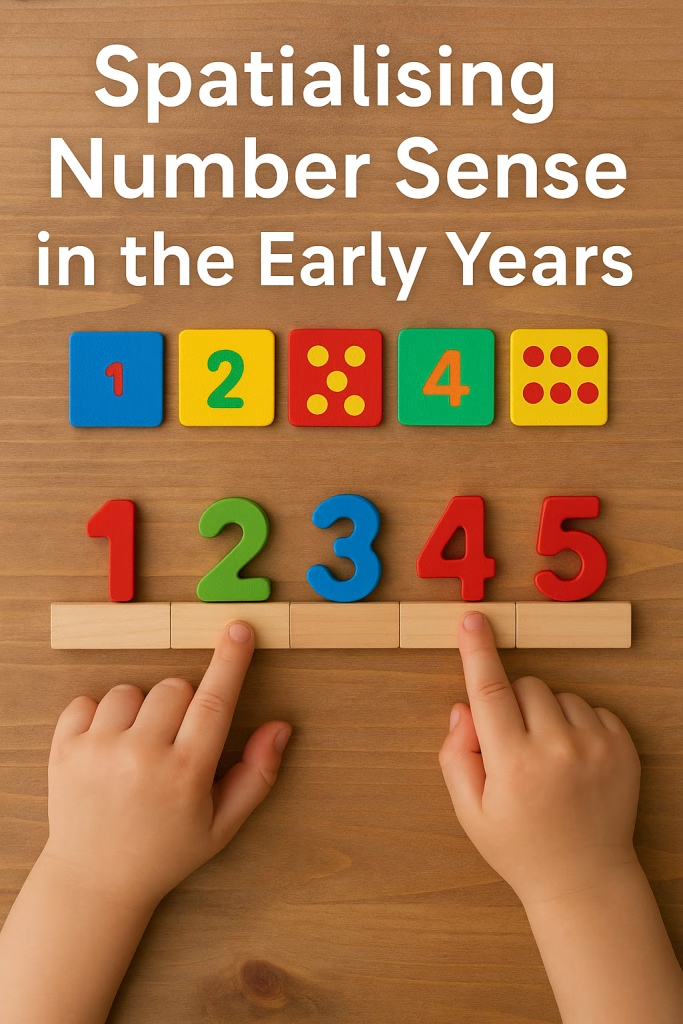Spatialising Number Sense in the Early Years
Course Description
The EFA Spatialising Number Sense in the Early Years program equips School Numeracy Leaders with an evidence-based framework to support teachers in designing targeted, impactful programs that use spatial reasoning as a driver for building robust number sense and improving outcomes for all learners.
In 2024, the South Australian Department for Education trialled a Year 1 Numeracy Check with 7,000 students, revealing that 60% were “mathematically vulnerable,” particularly in place value, multiplication, and division—core foundations of number sense. Research shows children begin informally engaging with these concepts before school, making the early years a vital window for intervention. From 2026, the Mathematics Assessment Interview of South Australia (MAI SA) will be rolled out statewide to assess counting, place value, addition, subtraction, multiplication, and division, providing teachers with essential insights to guide their planning and instruction.

A growing body of research makes clear that early number sense is deeply rooted in spatial reasoning—the ability to visualise, manipulate, and navigate objects and space. When children construct with blocks, fold paper, or reorganise groups of objects, they are drawing on spatial reasoning to make sense of complex and abstract number ideas. Strong spatial reasoning is one of the most reliable predictors of later mathematical success, yet it has received little recognition in curriculum and assessment practices. This oversight means that a powerful lever for strengthening children’s early mathematics development is often left untapped.
The EFA Spatialising Number Sense in the Early Years program directly addresses this gap by equipping Numeracy Leaders with an evidence-based framework to support teachers in designing targeted, impactful programs that use spatial reasoning as a driver for building robust number sense and improving outcomes for all learners.
Purpose and Objectives
By the end of this course, you will:
- Understand the depth and breadth of number concepts that children develop in the first three years of school
- Develop a deep understanding of spatial reasoning and its connection to the development of number sense in the early years
- Analyse, evaluate and develop a range of innovative, research informed teaching and learning resources
- Develop a range of skills and knowledge to support your teachers to implement a spatial reasoning pedagogy to teaching and learning number across the early years
Key Concepts Covered
- Splitting and counting are two basic cognitive functions that underpin our development of number
- Young children explore, experience and develop the foundations to a wide range of number concepts before formal schooling
- Spatial reasoning underpins early number sense and is a powerful foundation for children extending sophisticated and flexible understandings of early rational number concepts
Suitable For
This professional development program is designed for school middle leaders who play a pivotal role in supporting and guiding teaching practice. Structured as a series of self-paced modules, accompanied by a synchronous workshop led by Dr Chelsea Cutting, the program provides both practical and theoretical support. Participants will engage with worked examples of task and curriculum design across Foundation, Year 1, and Year 2, offering concrete illustrations of how effective, spatialised number learning experiences can be implemented in early years classrooms. To strengthen leadership capacity, the program also supplies accompanying resources that articulate the “why” behind the practices, including curated readings, video links, and explanatory materials that leaders can use to support and inspire their teaching teams.
